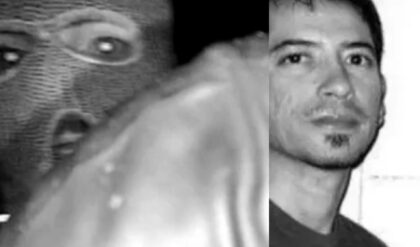We revisit the classic, all-star 1992 courtroom drama A Few Good Men, starring Tom Cruise, Demi Moore and Jack Nicholson.
In the early nineties, Tom Cruise was at a crossroads in his career. As he approached thirty, the time was fast approaching when he could no longer play the kind of “cool young guy” role that had made his eighties movies such huge successes. Indeed, the formula was starting to wear thin, with Days of Thunder underperforming at the U.S. box office. His follow-up, Far and Away, performed even worse, landing with a thud at the North American box office, despite it re-teaming Cruise with his now wife Nicole Kidman, whose career was starting to take off. It was time for Cruise to tweak the kind of movies he was making, and sure enough, his next film, A Few Good Men, would kick off a streak of 5 back-to-back $100 million hits, which would make him the most bankable actor in the world.
A Few Good Men was based on a play by Aaron Sorkin, who, at the time, was an unknown. Sorkin’s sister was a lawyer for the U.S. Navy Judge Advocate General’s Corps, better known now – largely thanks to this movie – as the JAG Corps. His sister told him about a case that involved a group of marines on trial after a hazing (aka a Code Red) ordered by a superior officer almost resulted in the death of a fellow marine. Of the ten Marines accused of the crime, seven would accept a plea deal that called for their immediate dishonourable discharge. Three would elect to go to trial, ending in all three being cleared.
Sorkin would dramatize the events significantly, with the violent hazing resulting in a death and only two Marines being involved, with both of them electing to go to trial. The play immediately sold to producer David Brown, one of the original producers on Jaws, who partnered with Rob Reiner’s Castle Rock to make the film. Reiner was much in demand as a director at the time, having made This is Spinal Tap, Stand by Me and When Harry Met Sally, and he opted to direct the film. Sorkin was allowed to adapt his own play. However, despite receiving sole screenplay credit, famed writer William Goldman made some changes which Sorkin liked so much he included them in all future stagings of his original play.

As the lead, Daniel Kaffee, a silver-tongued JAG attorney who specializes in plea deals for his clients without ever having to go to trial, Tom Cruise was the first and only choice. While Days of Thunder and Far and Away may not have worked, Cruise was also coming off Rain Man and Born on the Fourth of July, meaning his acting bonafides were rock solid. The script, paired with Reiner’s reputation as a director, made the movie a hot property, meaning that they were able to assemble a star-packed dream cast that would include stars who were leading their own movies at the time in supporting roles.
Both Kiefer Sutherland and Kevin Bacon were big enough in the nineties that they could have arguably been up for the Kaffee role. Still, they agreed to play smaller parts, with Sutherland the sadistic 2nd Lt Kendrick, who participates in the cover-up, while Bacon would play opposing counsel, Captain Jack Ross. Demi Moore, who had done Ghost not long before, would play Lt. Cdr. JoAnne Galloway, co-counsel for Kaffee and his superior officer. This led to the studio Tri-Star, demanding that Sorkin write a sex scene for Cruise and Moore, claiming that there was no point in casting Moore if she wasn’t going to sleep with Cruise in the movie. Sorkin bristled at the studio note and was backed up by Reiner, who thought the idea was asinine. Kevin Pollack, then known mainly as a comedian, would play Kaffee’s best friend and the movie’s conscience, LT Sam Weinberg, while the rest of the cast would include up-and-comers like Cuba Gooding Jr and Noah Wyle. As the two accused marines, Reiner cast James Marshall, who was then best known for Twin Peaks, as PFC Louden Downey, while his own assistant, a non-actor named Wolfgang Bodison, would deliver an electrifying performance as Lance Corporal Dawson. Noted character actor JT Walsh would play the conscience-plagued Lieutenant Colonel Markinson, leading to him becoming much in demand over the years to come before his tragic death in 1998.
Of everyone, though, the biggest casting coup was Jack Nicholson, who would play the movie’s antagonist, Colonel Nathan R. Jessep. Nicholson was not the first choice for the role, with Gene Hackman passing on the role to do his Oscar-winning turn in Clint Eastwood’s Unforgiven. James Woods was another possibility, but in the end, Nicholson was paid a whopping $5 million for only ten days of work.

Watching A Few Good Men now, it’s easy to see why the film was such a sensation when it came out. It works as both an electrifying piece of entertainment and a prestige drama. Cruise is perfect as the cocky Kaffee, who wants to serve enough time as a JAG to set up a career in private practice, and would rather stay out of the courtroom entirely. He’s challenged by Moore’s Galloway, as well as the fact that both of his clients would rather fight in order to prevent being discharged from the military. He finds himself up against the military establishment, with Nicholson’s venal Jessep, a career officer on his way to a high-profile slot in the cabinet but with a sadistic streak a mile long. However, the movie was celebrated in 1992 for the fireworks between Nicholson and Cruise that happen on camera, and Nicholson is great – to a point. He does struggle with Sorkin’s dialogue a bit at the very end, but like most others in the cast, it comes off as stagey in the way Sorkin’s often does. That’s why I think Cruise all but walks away with the movie, as he’s so damn cocky that you buy him speaking in that classic Sorkin way, and he almost makes the pages and pages of dialogue seem naturalistic. Ditto JT Walsh, who delivers a quiet performance that’s the opposite of Nicholson’s but has maybe even a greater impact.
All in all, A Few Good Men was a blockbuster for all involved, earning a mighty $141 million in the US and another cool $100 million overseas. It walked away with five Oscar nominations but no wins and has gone on to be seen as a classic in the filmographies of all involved. One of its most lasting legacies has been how it led to the creation of the long-running CBS legal drama JAG, with the moniker being popularized in the movie’s wake, while Sorkin went onto The West Wing and a career as one of the most in-demand writers in Hollywood. Sorkin and Reiner would reunite for The American President a few years later. For Cruise, it would be the movie he needed to take him out of the babyface “Maverick-style” roles that defined his early career and kick off the next, and perhaps greatest, phase of his stardom



